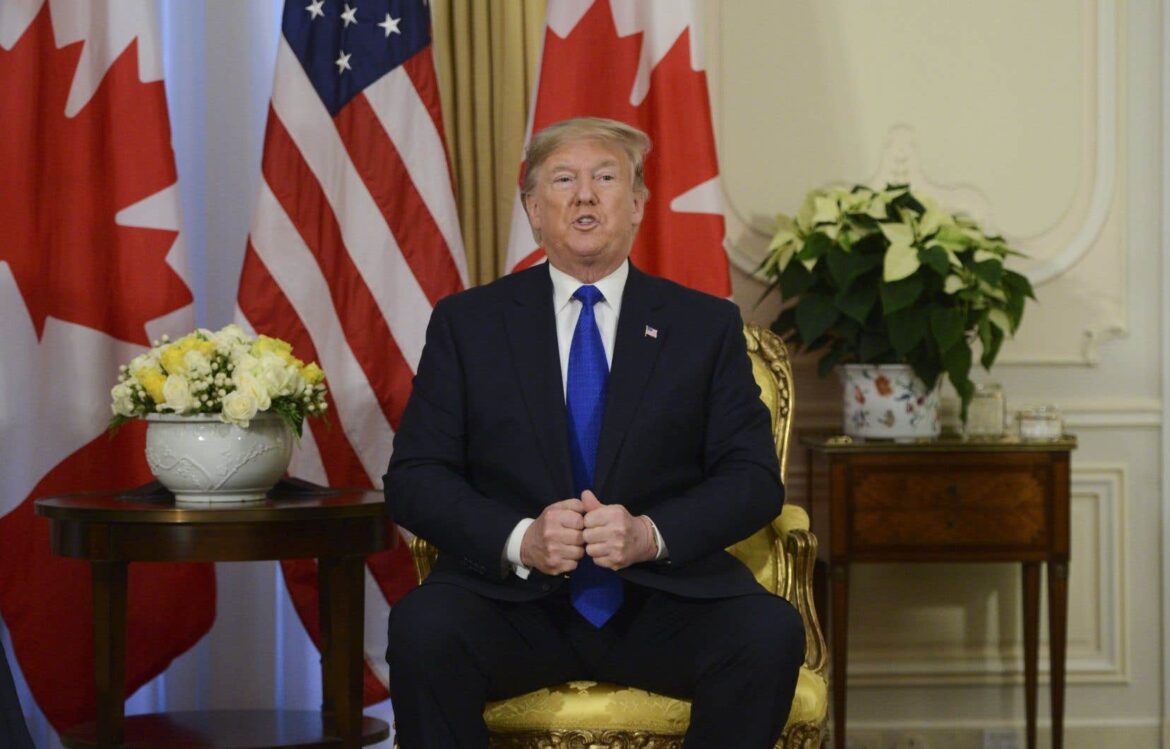A Canadian immigration lawyer says Donald Trump technically has no right to cross the border into Canada now that he is a convicted felon.
The former US president was found guilty on Thursday of all 34 counts in his criminal trial for concealed payments, punishable by up to four years in prison.
“Technically, after being found guilty, he is now inadmissible to Canada,” highlighted Mario Bellissimo, an immigration lawyer and political analyst based in Toronto.
Given the number of convictions, Mr. Trump will likely remain barred from crossing the Canadian border as a civilian until at least five years after serving his sentence, Ms.e Bellissimo.
After that, he can apply for a “certificate of rehabilitation”.
Alternatively, Donald Trump could apply for a visa if he had a particularly compelling reason to come to Canada, the lawyer said, but it would be very difficult for most people to obtain one under the same circumstances.
However, Mr. Trump is anything but a conventional case.
The verdict makes the billionaire the first former US president to be convicted of criminal offenses. It comes just six months before the presidential election for which Mr. Trump is the presumptive Republican nominee.
Donald Trump’s ability to travel north may well depend on his political fortunes and re-election to the Oval Office. The Canadian government has the discretionary power to authorize people to enter, particularly for diplomatic reasons, emphasized immigration lawyer Nathan McQuarrie.
“In practice, the Canadian government would probably assess the diplomatic consequences and could still find a way to facilitate the visit, possibly under authorization or special conditions,” detailed Mr.e McQuarrie, based in British Columbia and specializing in cross-border business with the United States.
“While convictions could theoretically affect a U.S. president’s admissibility to Canada, the reality is that diplomatic considerations and special permits…are likely to facilitate his entry, particularly for official functions.” »
But the more serious the crime, the bigger the problem, McQuarrie said, and fraud convictions would fall into the “serious” category.
Spokespeople for the ministers of Public Safety and Immigration said they would not discuss individual cases, even those as high-profile as that of Donald Trump.
The Canada Border Services Agency said decisions about who is allowed to enter Canada are made “on a case-by-case basis.”
“Several factors are used to determine whether a person is admissible to Canada, including involvement in criminal activity, human rights violations, organized crime, security, health or financial reasons,” said the agency in a press release.
Mr. Trump has repeatedly declared his love for Canada during his time in the Oval Office, but that doesn’t necessarily mean Canada is at the top of his list of travel destinations.
Donald Trump’s sentencing is scheduled for July 11, just days before the Republican National Convention.
The irony, according to Mario Bellissimo, is that if Mr. Trump had committed the same crimes as a Canadian, it would probably be impossible for him to travel south of the border.
“It is a crime of moral turpitude,” argued Me Bellissimo. Even after potentially serving his time and completing his sentence, it would be very difficult to enter the United States. But that’s a whole different story. »
With archives from Dylan Robertson and the Associated Press



